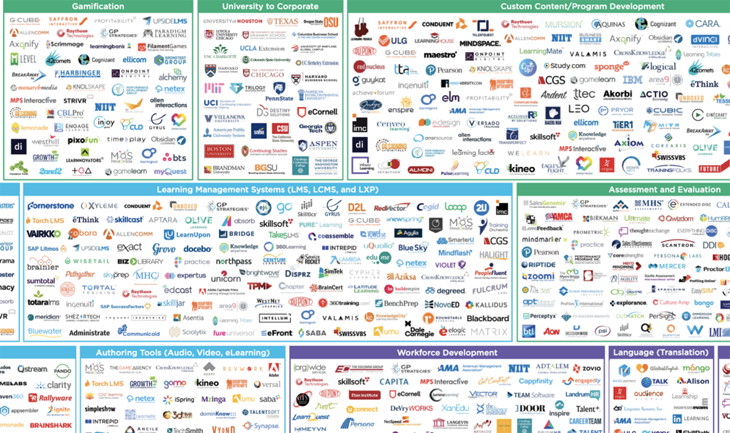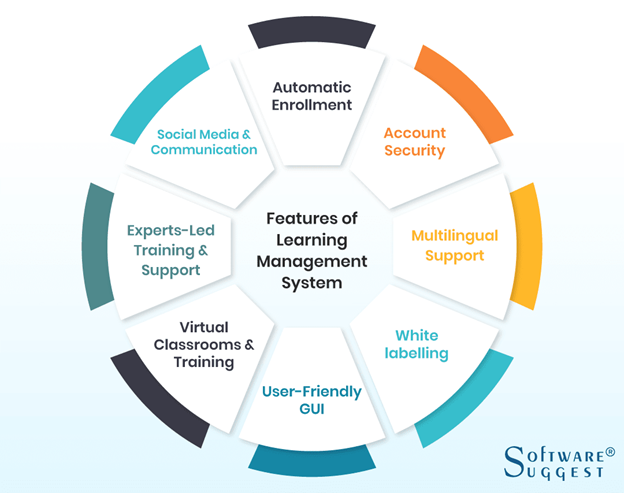LMS Singapore for Corporate Training: Increase Your Labor force's Abilities Effectively
Picking the Ideal Discovering Administration System for Your Organization
Picking the ideal Discovering Management System (LMS) for your organization is a multifaceted choice that calls for mindful consideration of numerous elements. As organizations make every effort for efficiency and development, the choice of an LMS ends up being significantly significant.
Define Your Understanding Objectives
Defining clear discovering purposes is important for the effective execution of a Learning Administration System (LMS) These purposes work as a roadmap, directing the advancement of material, analyses, and overall instructional methods within the LMS. By establishing particular, quantifiable, possible, pertinent, and time-bound (SMART) objectives, organizations can guarantee that the learning experiences are lined up with their calculated purposes and student demands.
Reliable understanding objectives should encapsulate what learners are expected to know or be able to do upon conclusion of a training course or training program. This clarity not just aids in content creation yet also helps with the assessment of learner progress and the overall effectiveness of the LMS. Learning Management System Singapore. Furthermore, distinct purposes make it possible for stakeholders to examine whether the selected LMS functions and functionalities straighten with their instructional objectives.
Assess Customer Experience
Once discovering objectives have actually been developed, assessing user experience comes to be an important next action in choosing an appropriate Understanding Monitoring System (LMS) Individual experience encompasses the total fulfillment and simplicity with which learners engage with the system. A well-designed LMS needs to help with instinctive navigating, guaranteeing that individuals can find courses, products, and assistance easily.
To assess customer experience, consider performing usability screening with a representative example of end-users. This can provide useful understandings into just how learners engage with the system. Key aspects to evaluate include the LMS's user interface layout, availability features, mobile compatibility, and the clearness of guidelines provided. Individual responses is important; accumulating surveys or carrying out meetings can reveal common discomfort points and areas for enhancement.
In addition, review the accessibility of assistance resources, such as tutorials and assistance centers, which can boost the user experience. The responsiveness of customer assistance is likewise critical; timely help can dramatically mitigate disappointments that customers might run into. Ultimately, picking an LMS that focuses on customer experience not just improves the finding out procedure however likewise promotes higher engagement and complete satisfaction among learners.

Evaluate Assimilation Capacities
Identifying the relevance of seamless capability, reviewing assimilation capacities is crucial when selecting a Learning Management System (LMS) An effective LMS should facilitate interoperability with existing systems, such as Personnel Monitoring Equipment (HRMS), Client Connection Administration (CRM) platforms, and other educational devices. This assimilation enhances information circulation, lowers administrative burdens, and ensures a cohesive knowing environment.
When assessing an LMS, think about the kinds of integrations offered. Seek Application Shows User Interfaces (APIs), Single Sign-On (SSO) capabilities, and pre-built adapters that streamline integration procedures. Additionally, verify the LMS's ability to incorporate with third-party tools, such as material libraries or analysis platforms, which can significantly enhance the knowing experience.

Think About Scalability and Flexibility
As companies progress, the ability of a Learning Management System (LMS) to range and adapt comes to be progressively essential. A scalable LMS can suit growth in user numbers, training course offerings, and material without endangering performance or user experience. As businesses increase, whether through increased personnel, brand-new areas, or diversified training needs, the LMS ought to flawlessly grow along with these changes.
Versatility is equally necessary; an effective LMS needs to sustain various discovering linked here methods, such as online, blended, and mobile discovering. This flexibility permits organizations to respond promptly to arising trends in training and advancement, making certain that they can offer appropriate and appealing learning experiences - Singapore LMS. Additionally, the system ought to supply personalized attributes, enabling organizations to tailor the LMS to their particular demands and branding
Additionally, an adaptable LMS needs to incorporate conveniently with existing devices and systems, promoting a natural learning ecosystem. Thus, when selecting an LMS, it is essential to evaluate not only its current capabilities but also its potential to adjust and expand abreast with the company's critical goals and developing learning needs. This insight can substantially enhance the long-lasting stability of the chosen LMS.
Evaluation Costs and Budgeting
When assessing a Learning Monitoring System (LMS), assessing prices and budgeting is important to guarantee that the financial investment lines up with the company's economic capabilities and calculated objectives. you could try these out Organizations ought moved here to begin by recognizing the overall price of possession, which consists of licensing charges, application costs, upkeep, and any type of added expenditures such as training and technical support.
It is vital to compare numerous LMS alternatives, as rates models can vary dramatically among vendors. Some systems might provide a subscription-based version, while others might charge an one-time fee. Organizations must also consider the scalability of the LMS; as they expand, the cost framework may alter, affecting lasting budgeting.

Final Thought
Choosing an ideal Learning Management System (LMS) is essential for achieving organizational discovering goals. Ultimately, the right LMS serves as a crucial device in cultivating an effective learning atmosphere and driving organizational success (LMS Singapore).
Choosing the optimal Learning Monitoring System (LMS) for your organization is a complex decision that needs mindful consideration of various aspects.Specifying clear understanding goals is vital for the successful application of an Understanding Administration System (LMS)Once finding out objectives have actually been established, assessing user experience ends up being an important following action in picking an appropriate Discovering Monitoring System (LMS)As organizations develop, the capability of a Discovering Monitoring System (LMS) to scale and adapt comes to be increasingly crucial.Picking an appropriate Understanding Management System (LMS) is important for attaining organizational learning objectives.